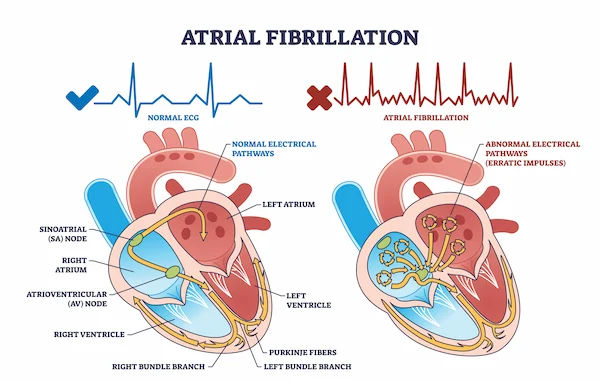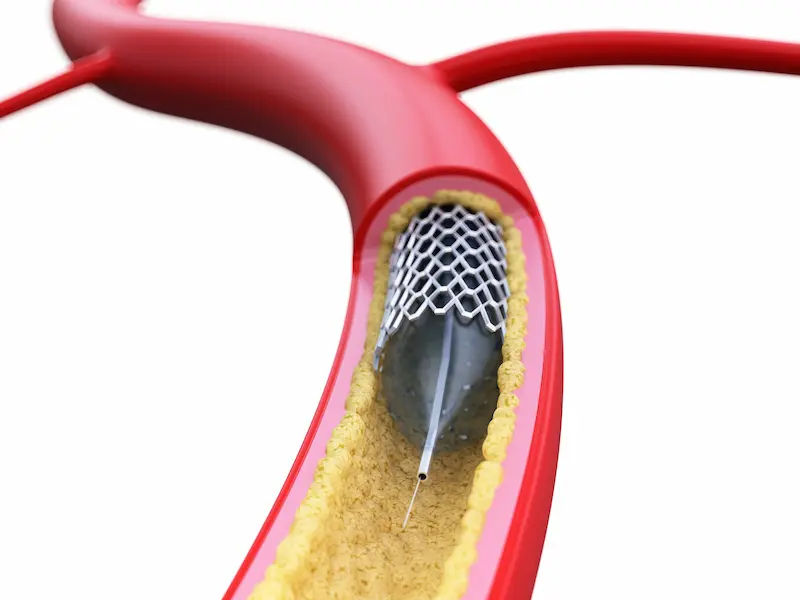- male
- 40 Years
- 22/01/2025
I've been having chest pains and I got a CT angio which showed myocardial bridging of my proximal LAD at 1.8 cm. My cardiologist said everythings fine and not to worry, but I still get regular chest pains, especially when walking or climbing stairs. What do you think I should do about this?
Answered by 1 Apollo Doctors
Based on your symptoms and the presence of myocardial bridging in your proximal LAD, it is important to address the ongoing chest pain you are experiencing. Since your cardiologist has already reviewed your case and deemed it not concerning, you may benefit from medication to help alleviate your symptoms. I recommend starting a calcium channel blocker such as Diltiazem (Cardizem) at a low dose initially, and gradually increasing as needed under the guidance of your doctor. Additionally, you can also consider taking a nitrate medication like Isosorbide Mononitrate (Imdur) to help with chest pain relief during physical activity. It is important to follow up with your cardiologist for further evaluation and management.
Dr. Chandra Suggests...
Consult a Cardiologist
Answered 04/07/2025
0
0

More Cardiology Health Queries
View allI'm really worried about my mom. Her blood pressure is quite high, 170100, even though she's on medication. She's not eating well and feels really weak. Do you have any suggestions for home remedies or foods she can try? Maybe some juices that could help? I'm just trying to find anything that might make her feel better.
To help control your mother's high blood pressure (170100), consider these home remedies and dietary suggestions in conjunction with her prescribed medication: encourage her to drink plenty of water, herbal teas like hibiscus, and juices like pomegranate, beetroot, and amla; incorporate potassium-rich foods like bananas, leafy greens, and sweet potatoes; add omega-3 fatty acid sources like fatty fish, flaxseeds, and walnuts; use herbs and spices like turmeric, ginger, and cinnamon; and consider supplements like CoQ10, vitamin D, and magnesium
Answered by 1 Apollo Doctors
We've been giving our mom Axcer 90 mg along with other meds like Atocor, Ecospirin, and stuff for her thyroid for about two months now. We're wondering if we could stop the Axcer since we've been on it for a while and honestly, it's just really expensive. We can't keep up with the cost. Is there a cheaper alternative that works just as well? Would love to hear your advice on this.
no do not stop it without doctors advice,as you say you are having affordability issues,ask your doctor for alternate medication
Answered by 1 Apollo Doctors
I've been feeling some pressure and uneasiness in my heart for the past week, and it usually lasts about an hour. Sometimes it feels a bit better when I cough, but it's only a temporary relief. I'm not experiencing chest pain or getting tired when I work out, which is puzzling. Could this be related to stomach gas or something else? I also got my lipid profile checked, and things seem a bit off with high triglycerides and non-HDL cholesterol. What could be causing these symptoms, and are there any changes I should make to my diet?
Based on your symptoms and lipid profile, the uneasiness and pressure at the heart lasting for about an hour could be related to your high triglyceride levels. The cough providing temporary relief may be due to associated gastric reflux. To address this, you should consider making some dietary changes to improve your lipid profile and overall heart health. I recommend reducing your intake of saturated fats, trans fats, and cholesterol-rich foods. Increase your consumption of fruits, vegetables, whole grains, and lean proteins. Additionally, incorporating foods rich in omega-3 fatty acids like fatty fish, flaxseeds, and walnuts can help lower triglyceride levels. In terms of medication, you may benefit from a prescription medication such as Atorvastatin (brand name Lipitor) to help lower your LDL cholesterol levels and reduce the risk of cardiovascular events. The usual starting dose for Atorvastatin is 10-20 mg once daily, but your doctor may adjust this based on your lipid profile and response to treatment. It is important to follow up with your healthcare provider for further evaluation and management of your lipid profile and heart symptoms. Regular monitoring and adherence to lifestyle modifications and prescribed medications are crucial in managing your condition.
Answered by 1 Apollo Doctors
Disclaimer: Answers on Apollo 247 are not intended to replace your doctor advice. Always seek help of a professional doctor in case of an medical emergency or ailment.





